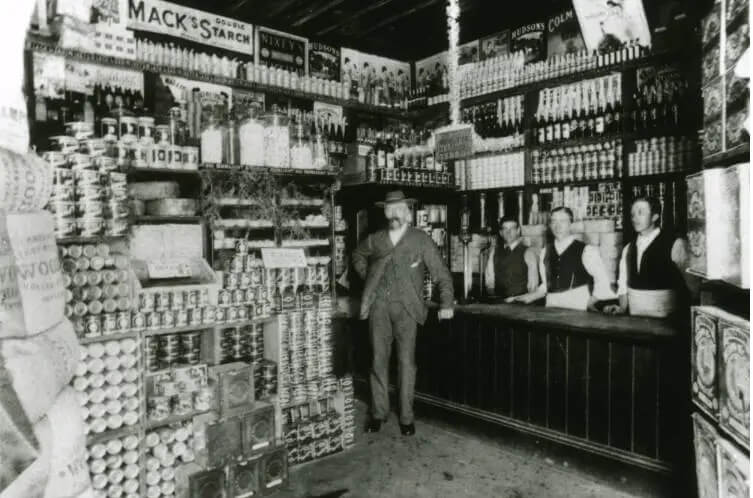Mary Ryburn put her headache down to an attack of biliousness. It was the end of August 1899 and 54 year old Mary, along with the rest of her Paterangi family, had eaten some tinned salmon the night before. The next day she felt slightly worse, although everyone else felt fine. Mary deteriorated the following day and Dr Pairman was called in, saying at once it was a case of food poisoning. Mary could not keep anything down and was becoming very weak.
Two days later she seemed a little better, but the next morning the doctor had little hope and Mary gradually became weaker before seeming to just slip away.
Mary was of a most cheerful disposition, a kind friend and a good neighbour, who always had a pleasant word of welcome to anyone who came near her home and hers was a great loss to Paterangi. She had come to New Zealand with her parents from Devonshire at the age of 12, living with them at Tamaki until she married James Ryburn, a Scotsman, in 1867. After a few years in the Auckland area they moved to Te Awamutu, and then to a Paterangi property called Greenbank. James was a farmer and later a seed, manure and grain merchant at an Ōhaupō store. The Ryburns had 11 children. One son died as an infant in 1879. More tragedy lay in wait with the death in 1892 of Louisa, 19, then two years later the loss of Blanche, 17. Four years later there was a near miss for their son Douglas who made a miraculous escape from death when a dray capsized in a swamp while he was carting water.
Mary’s death, the Coroner thought, did not need an inquest – he concluded the cause was blood poisoning, leading to questions of ‘was it the salmon?’ in national newspapers.
There were several cases over the years of ‘tinned salmon’ or ptomaine poisoning – a term now known as food poisoning. Ptomaine was described as a ‘mighty atom’ which loved to lurk in various parts of the human diet.
Housewives were warned to be on their guard, particularly in hot weather. Food stored in dark, damp, airless larders or cupboards, and the keeping of milk, butter, meat, fish, and butcher’s sausages close together meant each gave its own gases to the other, becoming centres for colonies of ptomaines. Housewives were cautioned, before buying any canned food, to look carefully for the ‘bulging tin’ and reject it as there were ‘death germs’ inside at work.
The only way of avoiding risk appeared to be meticulous cleanliness, and eating only food that was absolutely above suspicion. The can opener too, should be kept scrupulously clean and scalded with hot water. Nearly 30 years after Mary’s death the cause was still not understood – the ‘germ’ being thought one of a rather mysterious group, and how they got into the tinned foods and why they were so poisonous was something of a puzzle. Much time was spent investigating one case where the ‘germ’ was believed to have got in through a hole in the tin.
About a dozen buggies and over fifty people on horseback joined in Mary’s funeral procession and by the time it reached St John’s Church, Te Awamutu, it had increased to nearly 200, many coming out from the town on foot. Her coffin was covered with wreaths, crosses and other floral tributes of affection. Mary and her daughters Louisa and Blanche are all buried together.

NZ grocery store 1890 – 1899









